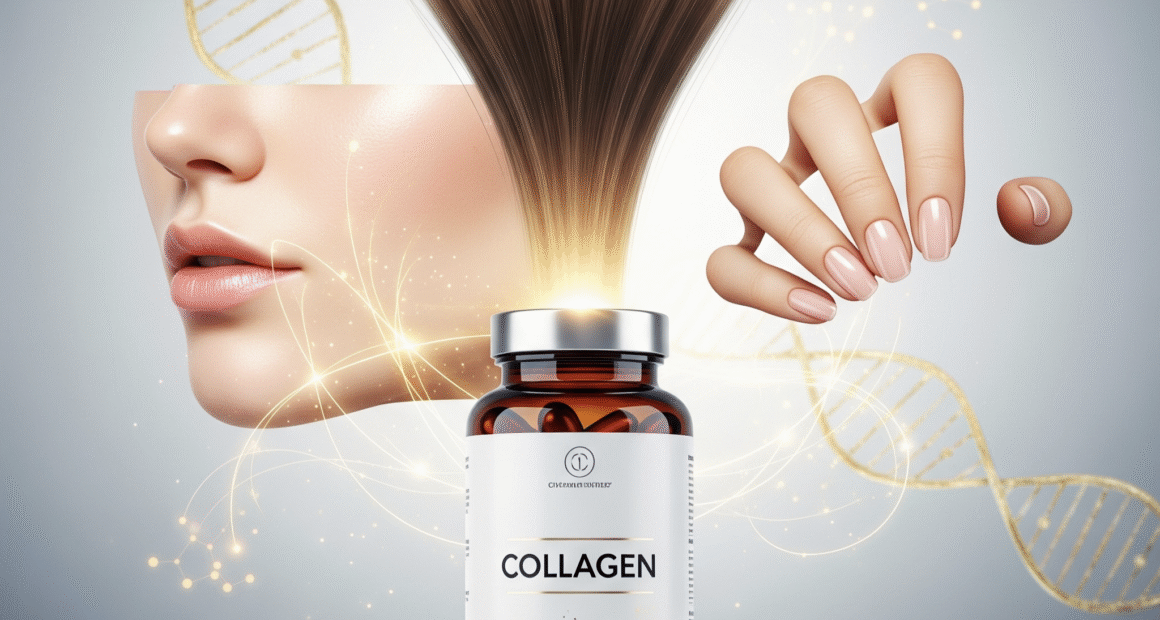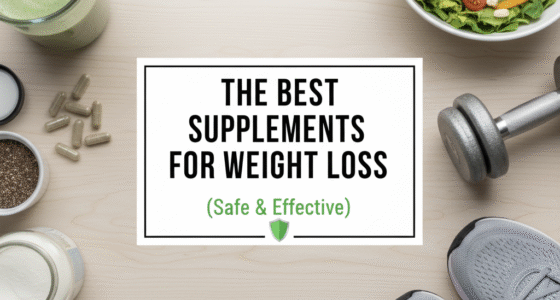Collagen supplements have become one of the most popular health and beauty trends in recent years. From powders and capsules to drinks and protein bars, collagen products are marketed as solutions for younger-looking skin, healthier joints, stronger hair, and improved gut health. But with so many claims, it’s natural to wonder: do collagen supplements actually work? In this comprehensive guide, we’ll dive into the science of collagen, what experts say, and whether adding collagen to your diet is worth your time and money.
What is Collagen?
Collagen is the most abundant protein in the human body, making up about 30% of our total protein content. It serves as a structural building block for skin, bones, muscles, tendons, and ligaments. Essentially, collagen acts like glue, holding the body together and keeping tissues firm and elastic.
However, as we age, collagen production naturally declines. This leads to common signs of aging, such as wrinkles, sagging skin, joint stiffness, and weaker bones. Lifestyle factors like smoking, high sugar intake, and excessive sun exposure can also accelerate collagen loss.
Types of Collagen
There are at least 28 different types of collagen, but three are most relevant for supplements and health benefits:
- Type I: Found in skin, bones, and tendons. Known for supporting skin elasticity and strength.
- Type II: Found in cartilage. Important for joint health and cushioning.
- Type III: Found in skin, muscles, and blood vessels. Works alongside Type I for skin and tissue health.
How Do Collagen Supplements Work?
Most collagen supplements are made from animal sources such as bovine (cow), porcine (pig), or marine (fish) collagen. These are broken down into smaller molecules called collagen peptides or hydrolyzed collagen, which the body can absorb more easily.
When consumed, collagen peptides travel through the digestive system and are absorbed into the bloodstream as amino acids and short peptides. Research suggests that these peptides may stimulate the body’s own collagen production and support tissue repair.
Proven Benefits of Collagen Supplements
- Improved Skin Health: Several studies have found that collagen supplements may improve skin elasticity, hydration, and smoothness while reducing wrinkles.
- Joint Support: Collagen supplements may reduce joint pain and stiffness in people with osteoarthritis or athletes under physical stress.
- Bone Health: Collagen may help maintain bone density and reduce the risk of osteoporosis.
- Stronger Hair and Nails: Some studies suggest collagen can improve nail strength and reduce brittleness.
- Muscle Mass: When combined with resistance training, collagen may help increase lean muscle mass.
Limitations and Myths
While collagen supplements show promise, it’s important to separate facts from marketing hype:
- Not All Collagen Is Equal: Marine collagen is often better absorbed than bovine collagen, but it tends to be more expensive.
- Collagen Isn’t Magic: Supplements won’t completely stop aging or replace a healthy lifestyle.
- Results Vary: Some people may see benefits in weeks, while others may not notice major changes.
- Diet Still Matters: A balanced diet rich in protein, vitamin C, and antioxidants is essential for natural collagen production.
Are There Any Risks?
Collagen supplements are generally considered safe for most people. However, there are a few things to keep in mind:
- Some people may experience mild digestive issues like bloating or heartburn.
- Those with allergies to fish, shellfish, or eggs should check supplement labels carefully.
- Pregnant or breastfeeding women should consult a doctor before use.
Best Ways to Boost Collagen Naturally
Supplements are one option, but you can also support your body’s collagen production naturally:
- Eat Protein-Rich Foods: Chicken, beef, fish, eggs, and legumes provide amino acids needed for collagen synthesis.
- Vitamin C: Found in citrus fruits, berries, and bell peppers — vital for collagen production.
- Antioxidants: Green tea, leafy greens, and nuts protect collagen from damage.
- Limit Sugar & Smoking: Both accelerate collagen breakdown.
- Stay Hydrated: Water keeps skin cells plump and elastic.
Do You Really Need Collagen Supplements?
Whether collagen supplements are “worth it” depends on your goals. If you’re looking to support skin health, reduce joint pain, or improve recovery, supplements may provide noticeable benefits. However, they work best alongside a healthy diet, regular exercise, and good skincare habits.
Conclusion
The truth about collagen supplements is this: they’re not a miracle cure, but science shows they can provide real benefits for skin, joints, bones, and overall health. If you’re consistent and combine collagen with healthy lifestyle choices, you may see improvements in how you look and feel. As with any supplement, choose high-quality products and consult with your healthcare provider if you have any medical conditions.









